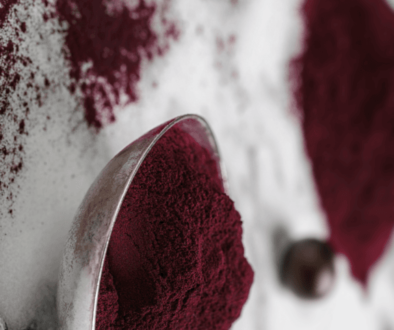TO ORDER GRANULES CONTACT VIA WATSAPP – +91-8090113353 OR VIA EMAIL – INFO@RASS-BIOSOLUTION.COM

In the world of pharmaceutical formulations, the delivery method of a drug plays a crucial role in its effectiveness. Different drug delivery systems are designed to ensure that active ingredients are delivered to the right place in the body at the right time. Among these, granules have emerged as a preferred choice for many drug formulations. In this blog, we’ll explore the advantages of granules over powder for drug delivery, highlighting why this form is becoming increasingly popular in the pharmaceutical industry.
What Are Granules?
Granules are small, solid particles formed by binding powder particles together into a larger, more cohesive mass. These granules are typically created through a process called granulation, where the powder is bound with a liquid binder and then dried to form uniform granules. Granules can vary in size but are generally larger than powders, making them easier to handle and process.
The Difference Between Granules and Powder
While powder consists of finely ground particles of a substance, granules are larger and more cohesive aggregates of powder. Powders can be difficult to handle due to their fine particles, which can create issues like dust formation and uneven distribution. Granules, on the other hand, are much easier to handle, store, and transport.
Advantages of Granules for Drug Delivery
1. Improved Flowability
Granules are much easier to handle and process compared to powders due to their superior flowability. The granulation process binds smaller particles together, resulting in larger and more uniform-sized particles. This enhanced flowability makes granules easier to fill into capsules or tablets without causing blockages or inconsistency in drug dosage. In contrast, fine powders often exhibit poor flow properties, leading to potential challenges in accurate drug formulation and packaging.
2. Controlled Release of Active Ingredients
One of the most significant advantages of using granules in drug delivery is the ability to control the release of active ingredients. Granules can be engineered to provide sustained or extended release of the drug over a prolonged period, offering better therapeutic outcomes. This ensures that the drug is released gradually, maintaining optimal drug levels in the bloodstream and reducing the need for frequent dosing. Powders, on the other hand, tend to be absorbed too quickly, leading to fluctuations in drug levels and potentially less effective treatment.
3. Enhanced Stability
Granules tend to have better stability than powders, which is crucial in drug formulations. The granulation process often involves moisture control, reducing the potential for degradation due to environmental factors such as humidity. Powders, due to their fine nature, are more susceptible to absorbing moisture, leading to clumping or changes in their chemical structure. This increased stability of granules ensures that the drug remains potent for a longer period, improving both shelf life and efficacy.
4. Improved Handling and Packaging
Granules are less prone to dust formation than powders, making them safer and easier to handle. In pharmaceutical manufacturing, powder dust can be hazardous to workers and can also result in product loss during packaging. Granules, being more cohesive, are less likely to disperse into the air, minimizing exposure risks. Additionally, granules are easier to package, and their consistent size makes them ideal for high-volume production processes.
5. Better Bioavailability
Granules can be formulated to optimize the solubility of certain drugs, resulting in improved bioavailability. This is particularly important for drugs that have low solubility in water. By controlling the size and composition of the granules, pharmaceutical companies can enhance the dissolution rate of the active ingredients, allowing for faster absorption into the bloodstream. Powders, in comparison, may not always provide the same level of solubility or bioavailability due to their smaller particle sizes.
6. Lower Risk of Irritation
Fine powders can cause irritation in the gastrointestinal tract due to their smaller particle size and the potential for rapid dissolution. Granules, however, have larger particles that dissolve more slowly, minimizing the risk of irritation. This controlled release is particularly beneficial for drugs that are known to cause stomach discomfort or irritation when taken in powdered form.
Conclusion
Granules offer several distinct advantages over powders in drug delivery systems. From enhanced flowability and stability to better patient compliance and bioavailability, granules provide a more consistent and effective method of delivering medications. These benefits make granules an ideal choice for pharmaceutical companies looking to improve the quality and efficacy of their products.
Why Rass Biosolution Pvt. Ltd.?
Rass Biosolution is cutting-edge supplier of medication delivery solutions with an emphasis on medication adherence. We provide our customers worldwide with a variety of technology-driven drug delivery options for cutting-edge generic pharmaceutical goods. Rass offers a wide variety of semi-finished and finished categories/formulations of differentiated solid dose, value-added generic products to our customers.


